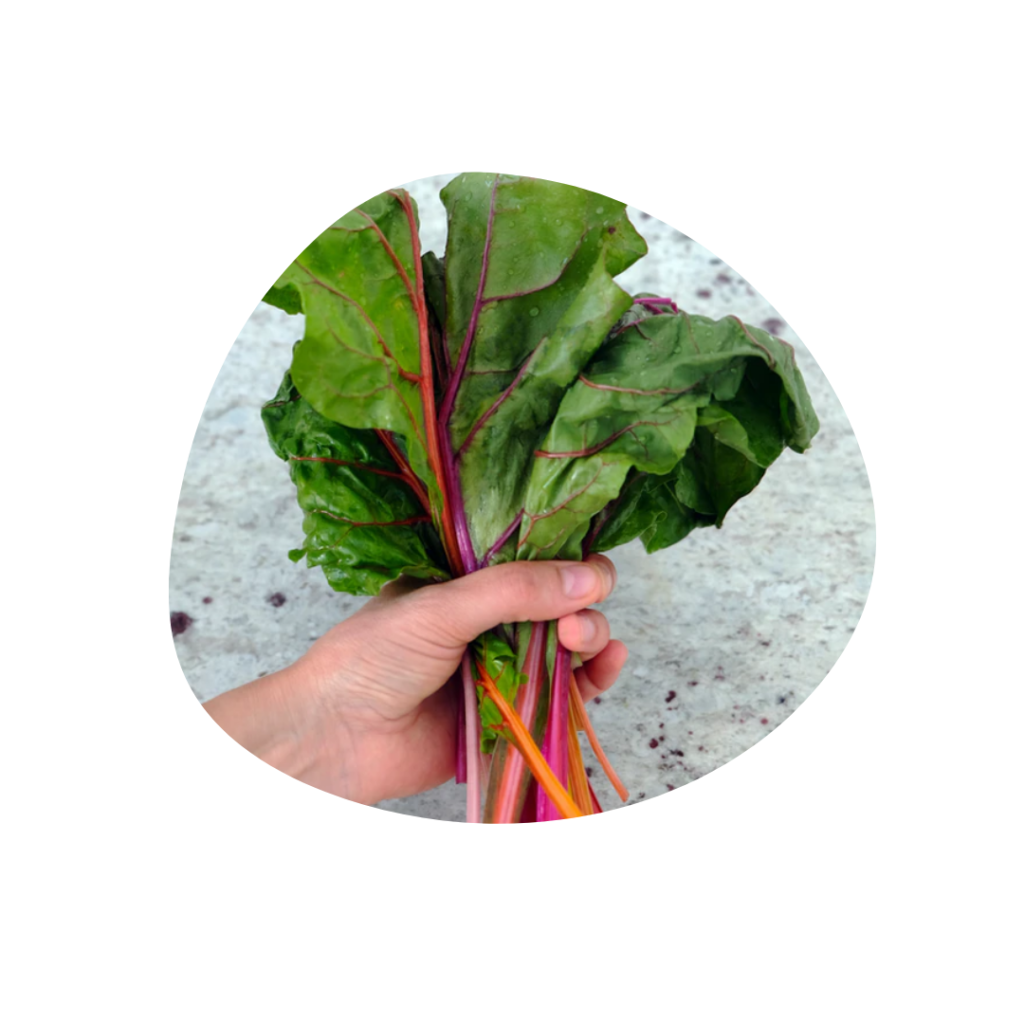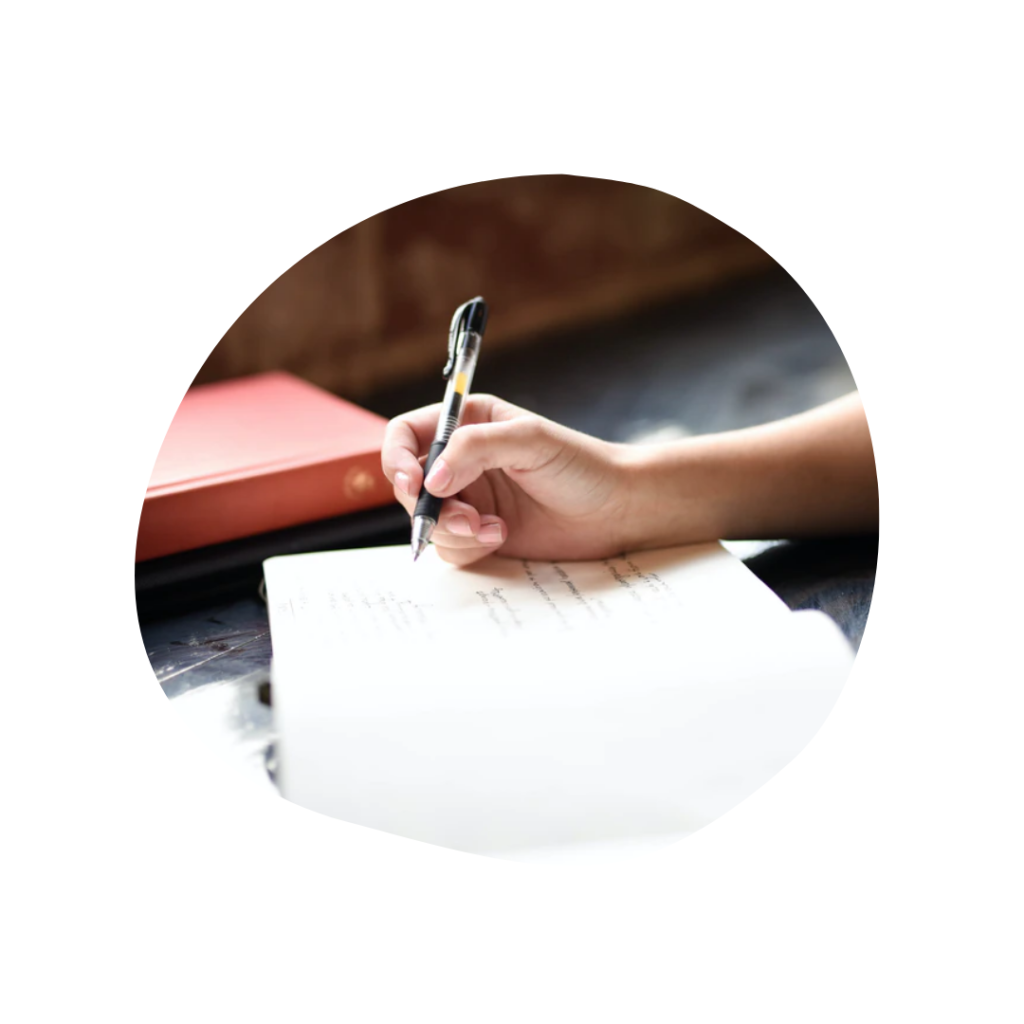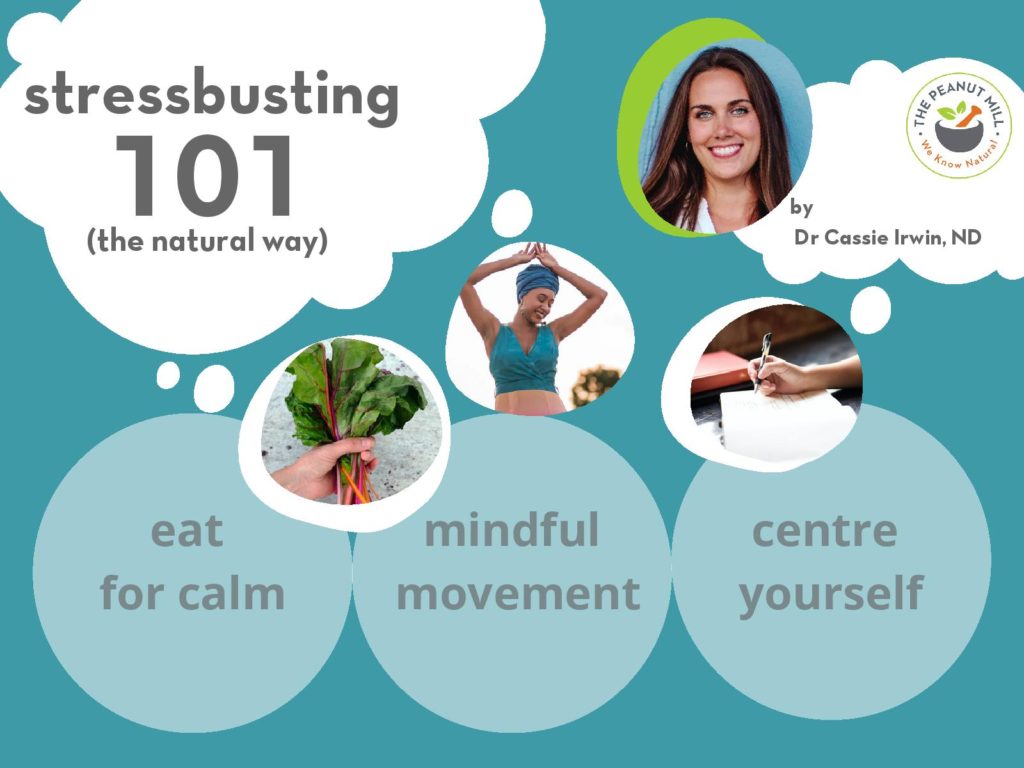by Cassie Irwin, ND
September feels very much like a “new year,” which comes with changes in routine and great expectations for goals and projects to accomplish. Whether you’re helping your kids get back into the school routine or are easing your way into work from a sleepy summer vacation, changes in your day-to-day life can feel stressful.
Stress can manifest in many ways, from difficulty concentrating, counting sheep at night, feeling irritable, and craving sweets. It can make us feel like we’re not being as productive as we could be, and can get in the way of us feeling happy and healthy.
Here are some natural stress management tips to help you and your family ease into September.
 1. EAT FOR CALM
1. EAT FOR CALM
The adrenal glands are the main organs responsible for helping us manage stress. The adrenal glands happen to be the biggest consumers of vitamin C in the body.
When we are feeling more stressed, it can be beneficial to ensure we’re eating an ample supply of vitamin C to support the adrenal glands’ stress response. Load your plate with leafy greens and vegetables, and snack on fruit for an afternoon pick-me-up.
B vitamins and magnesium can be particularly helpful for helping with the body’s cellular energy production and thereby alleviating stress-related fatigue and anxiety. B vitamins are commonly sourced in meats, fish, and fortified grains. Magnesium is a mineral commonly found in nuts, seeds and leafy greens.
If you’re one of the many who suffer digestive changes with stress – whether that’s constipation or diarrhea – make sure you aren’t eating on the run or while working. Take three deep breaths before starting your meal to engage the parasympathetic nervous system that’s responsible for digestion. And chew well!
Although commonly used as a crutch against stress, caffeine, sugar and alcohol are best to be avoided when stressed, as they often make the problem worse.
 2. mindful movement
2. mindful movement
On top of the cardiometabolic benefits of exercise, regular movement also benefits mental wellbeing. Studies have shown that both high intensity and medium intensity exercise training improves stress, anxiety, depression and mental resilience.
If you find yourself overwhelmed or feeling anxious, go for a quick walk around the block. Moderately raising heart rate for at least 30 minutes per day is significant enough to show positive changes in mental wellbeing.
TIRED OF THE SAME OLD EXERCISES? TRY THESE!
- Dancing
- Frisbee
- Hiking
- Rock climbing
- Orienteering
- Catch
- Walking meetings/calls
- Jump rope
- Yoga
- Slacklining
- Biking
- Kayaking
 3. CENTRE YOURSELF
3. CENTRE YOURSELF
There are many changes in routine at this time of year. Developing regular routines and practices that help to centre yourself amidst all the change can be helpful for quelling your stress and anxiety.
IDEAS TO CONSIDER:
- Wake up and go to sleep at the same every day
- Spend at least 20 minutes outside per day
- Commit to deep/diaphragmatic breathing for 12-15 minutes per day
- Barefoot grounding on the grass, sand or water for 10 minutes per day
- Meditation and/or prayer
- Intermittent silence for 10 minutes per day
- Read a paper book before bed
- Journal about your difficult emotions
- Speak to a mental health professional for CBT if needed
chronic stress: avoiding long-term effects
Commonly known as “Adrenal Fatigue,” HPA Axis dysfunction often presents as anxiety, depression, fatigue, irritability and insomnia. We see this happen after a period of prolonged stress and leading a hectic lifestyle without enough downtime.
A properly functioning HPA Axis helps you feel equipped to handle stressors, go to sleep easily and wake refreshed, and feel more like yourself. Simple practices including rising and sleeping at the same time every day, eating meals at the same time every day, getting outside for sunshine, and sleeping in complete darkness are fundamental for healthy HPA Axis functioning.
SUPPLEMENTS FOR STRESS:
- B vitamin complex
- Magnesium bisglycinate
- Vitamin C
- Lemon balm
- GABA
- L-theanine
- Passionflower
- Adaptogenic herbs
Adaptogenic herbs help you “adapt” to stress. There are many different adaptogenic herbs, such as ashwagandha, ginseng, and astragalus. Speak with your ND about which adaptogenic herb would be most helpful for your stress response and adrenal fatigue: there are three phases of adrenal fatigue and each phase requires a different type of adaptogenic herb for proper physiologic support.


Dr. Cassie Irwin, ND
Naturopathic Contributor, The Peanut Mill Natural Foods Market
WORKS CITED:
Borrega-Mouquinho, Y., et al. Effects of High Intensity IntervalTraining and Moderate-Intensity Training on Stress, Depression, Anxiety, and Resilience in Healthy Adults During Coronavirus Disease 2019 Confinement: A Randomized Controlled Trial. Front. Psychol., 24 February 2021https://www.frontiersin.org/articles/10.3389/fpsyg.2021.643069/full
Irwin, M. R., & Opp, M. R. (2016). Sleep Health: Reciprocal Regulation of Sleep and Innate Immunity. Neuropsychopharmacology, 42(1), 129–155. doi: 10.1038/npp.2016.148 https://www.ncbi.nlm.nih.gov/pmc/articles/PMC5143488/
Irwin, C. Putting Stress on Silent (2021). Alive magazine / Delicious Living. July 12, 2021. https://www.deliciousliving.com/health/putting-stress-on-silent/

